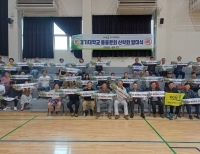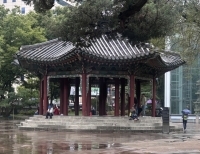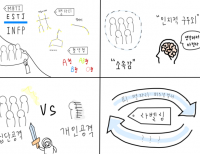Nowadays, victims who have been sexually assaulted raise the facts of their suffering on social media, reminding people of the frequent occurrence of sex offenses and as a result try to change society. They reveal the sexual crime that was committed by using the hash tag “Me Too (I will accuse you)” on social media, thereby perhaps preventing another occurrence of the crime by the perpetrator and raising awareness of sex crimes unrelated to their own particular matter. In particular, there is a strong tendency to reveal the hard-to-resolve sex crimes committed by people of high social status and individuals holding power over others in relationships. Therefore, it is also a movement to change the society in which the weak aren’t treated as equal human beings in the relations between men and women, teachers and students, and seniors and juniors. This movement is currently influencing Korea, and it is becoming such a hot topic that the “Pence rule” has been mentioned in Korea beginning with a public prosecutor named Seo Ji-Hyun. How did the strictly sealed problem of sexual crimes become a red-hot issue?
“Me Too” is a slogan that grew from “Just Be,” a group created by civil rights activist Tarana Burk to help young women who have been sexually abused. It was popularized by Hollywood actor Alyssa Milano in the United States, and suggested that if you were victimized by rape, you should post an article with #Metoo on Twitter. Milano posted a sexual episode with a famous filmmaker, Harvey Weinstein. Over 500,000 people retweeted the post in 24 hours supporting it, and more than 80,000 people posted #MeToo messages to expose their experiences. Starting with this, a lot of people, including many celebrities, have used social media to reveal their experiences and spread the movement throughout the world. At the Golden Globe Awards ceremony in January 2018, many Hollywood actors wore black dresses and tuxedos to express their support for the Metoo movement. This phenomenon is having repercussions not only in the entertainment industry, but also in politics and the media. CBS’s host Charlie Rose and NBC host Matt Lauer were dismissed. In Britain, the Minister of Defense, Michael Fallon, resigned and the Deputy Prime Minister, Damian Green, stepped out of office.
In Korea, the “Me too” movement, which has spread across the world, was ignited by Seo Ji-Hyun, a prosecutor. She promoted this campaign, exposing the sexual harassment that she encountered 8 years ago within the legal system to the world courageously. At that time, it was difficult to disclose sexual harassment cases. If this issue was brought to public notice later, it could cause the victim to suffer secondary and tertiary damage, so she was reluctant to expose it. As expected, the only things that came back to the victim after the incident was made public were audit notes, prosecution warnings, and a local declaration. After Seo’s courageous remark, the scale of the campaign began to grow as more people claimed to have suffered sexual harassment and sexual violence in the entertainment and cultural world. The representative assailants include a film director, Lee Yuntaek, a poet, Ko Un, a photographer, Bae Byungwoo, a renowned actor, Cho Minki, Cho Jae-hyun, and Oh Dalsoo. The number of victims of sexual harrassment, sexual molestation, and sexual violence by individuals such as these is increasing.
Recently, the political arena has spurred the movement. For instance, Ahn Heejeong, the governor of South Chungcheong Province, shocked the nation when it was alleged that he had subjected his secretary for political affairs to rape several times. According to the victim, Governor Ahn raped her not only on usual days but also on overseas business trips. Moreover, he forced the victim to pretend nothing had happened with an insincere apology. We realized that the penalties and the sentences for sex offenses should be stricter because of the cowardly people who inflict indelible scars on their victims, and then make excuses to those who are still suffering saying that they had consentual sex to lower the punishment instead of repenting and apologizing profusely for their criminal behavior. If the “Me too” campaign hadn’t started, they probably wouldn’t be reflecting on their behavior and still be committing sex crimes.
In response to this issue, Kim In-kyu, the president of Kyonggi University, also made his opinion known on the university’s homepage to alert students to the importance of the “Me too” campaign. He said he felt responsible for Me too actions, proactively implemented programs to prevent sexual harassment and sexual violence, and also supported efforts to provide a “comprehensive understanding of sexual harassment” and “how to deal with sexual violence” as well as information about countermeasures that are being taken. The university has strongly supported the movement, and if you are someone who has these concerns, why don’t you participate in the school’s programs and speak up?
Thus far, victims have hidden the fact that they suffered sexual violence, but now we should become a society that reveals the truth with confidence, and the public should support the victims with attention and warm encouragement. As Seo Ji-hyun said, “It is not the fault of the victims, so we do not want them to be hiding. We must blame the perpetrators not victims, and we must struggle to change society so it is able to actively respond to these tragic circumstances and make sure that such things no longer happens
Management Editor MYOUNG YERI
70th Cub Reporter CHOI SOYEON
 Freedom Given to Youth: An Opportunity for Choice or a Burden of Constraint?
“Are we truly free today?” Classical literature is far more than time-honored stories. It offers profound insights into human nature and society that transcend time, remaining a valuable resource for examining the challenges our world faces today. This article will draw on George Orwell’s 1984 and Charles Dickens’ Oliver Twist to explore the contemporary issues of youth housing and the emergence of a surveillance society ...
Freedom Given to Youth: An Opportunity for Choice or a Burden of Constraint?
“Are we truly free today?” Classical literature is far more than time-honored stories. It offers profound insights into human nature and society that transcend time, remaining a valuable resource for examining the challenges our world faces today. This article will draw on George Orwell’s 1984 and Charles Dickens’ Oliver Twist to explore the contemporary issues of youth housing and the emergence of a surveillance society ...

 [단신] 산악회, 본교 동문의 버팀목이 될 수 있도록
[단신] 산악회, 본교 동문의 버팀목이 될 수 있도록
 [사회메인] 노인 인구 1,000만 시대, 준비 없는 사회가 불안해
[사회메인] 노인 인구 1,000만 시대, 준비 없는 사회가 불안해
 [네컷만화] 라벨링 문화
[네컷만화] 라벨링 문화
 [진리터] 결국 우리 모두 돌아볼 것이니
[진리터] 결국 우리 모두 돌아볼 것이니

 목록
목록










